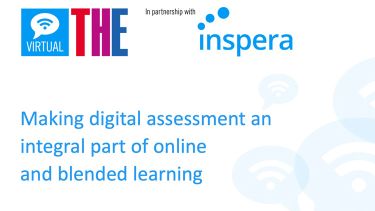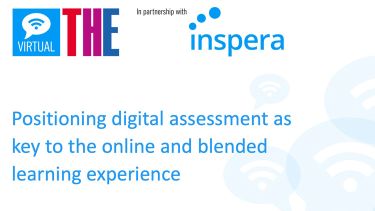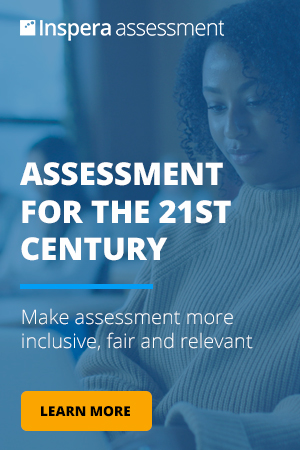
Flexible digital assessment is a win-win for students and universities alike
Digital assessment is already happening. As with other touchpoints on the student journey, assessment’s digital transformation was accelerated by the pandemic. But there is a sense that the sector has yet to fully embrace its full potential.
In his keynote speech at THE Digital Universities Week UK 2022, Ishan Kolhatkar – general manager (UK, Ireland and ANZ) of online assessment platform provider Inspera – acknowledged that there is a cultural change to overcome. Many academics are comfortable with how assessment is managed. Yet Kolhatkar mounted a convincing case in defence of digital assessment, arguing that digital tools gave universities the opportunity to offer alternatives to the traditional exam model and a more authentic assessment of their students’ capabilities.
Everyone has their own idea of what authentic assessment looks like, said Kolhatkar. Workplace tools can assess skills more effectively. “There is of course a great movement to try and make assessment even more authentic by getting them to replicate the sorts of things that people do in their daily lives once they leave higher education,” he said.
Digital tools allowed universities to move away from closed-book models while offering bespoke restrictions to preserve academic integrity. There are efficiencies to be gained from embracing digital. Assessments can be designed, shared and reused, then tweaked for different students. “You are not having to rewrite it all the time,” Kolhatkar said. “You have that basic information which you can then adapt as you wish. You can use exactly the same question set or you can make amendments.”
Distraction-free writing was a benefit of Inspera’s platform – students can be locked out of the outside world simply to help them concentrate. Examinations can also be conducted orally. Furthermore, it is possible to offer students a choice of assessment.
Kolhatkar said it was incumbent on those advocating for digital assessment, as he does, to acknowledge where there will be difficult moments when pivoting to a new model. Compromise was key to innovation. But ultimately, digital tools afforded academics and students benefits they’ve never had before.
Analysing the life cycle of assessment was easier. Academics can see how effective their questions are and which types of assessments are more effective. New processes can help the transition and, in time, the platform becomes familiar to faculty and students alike.
Find out more about Inspera.















